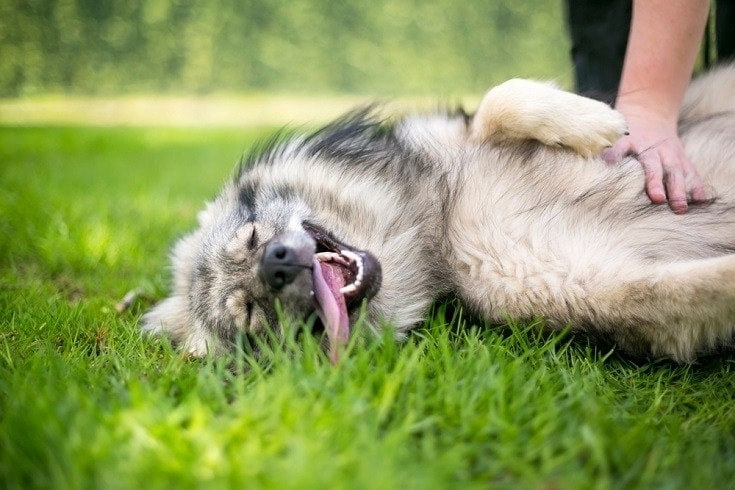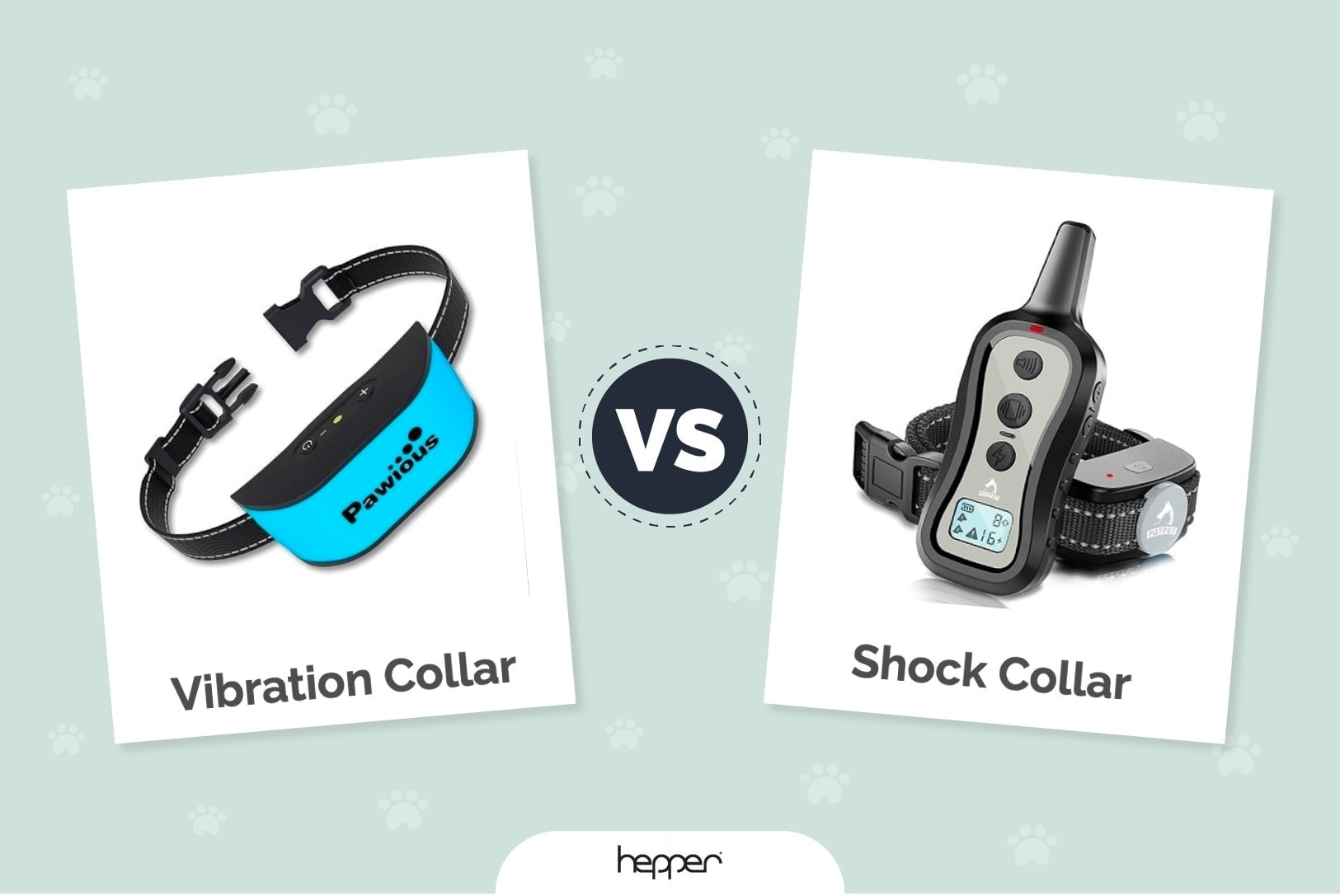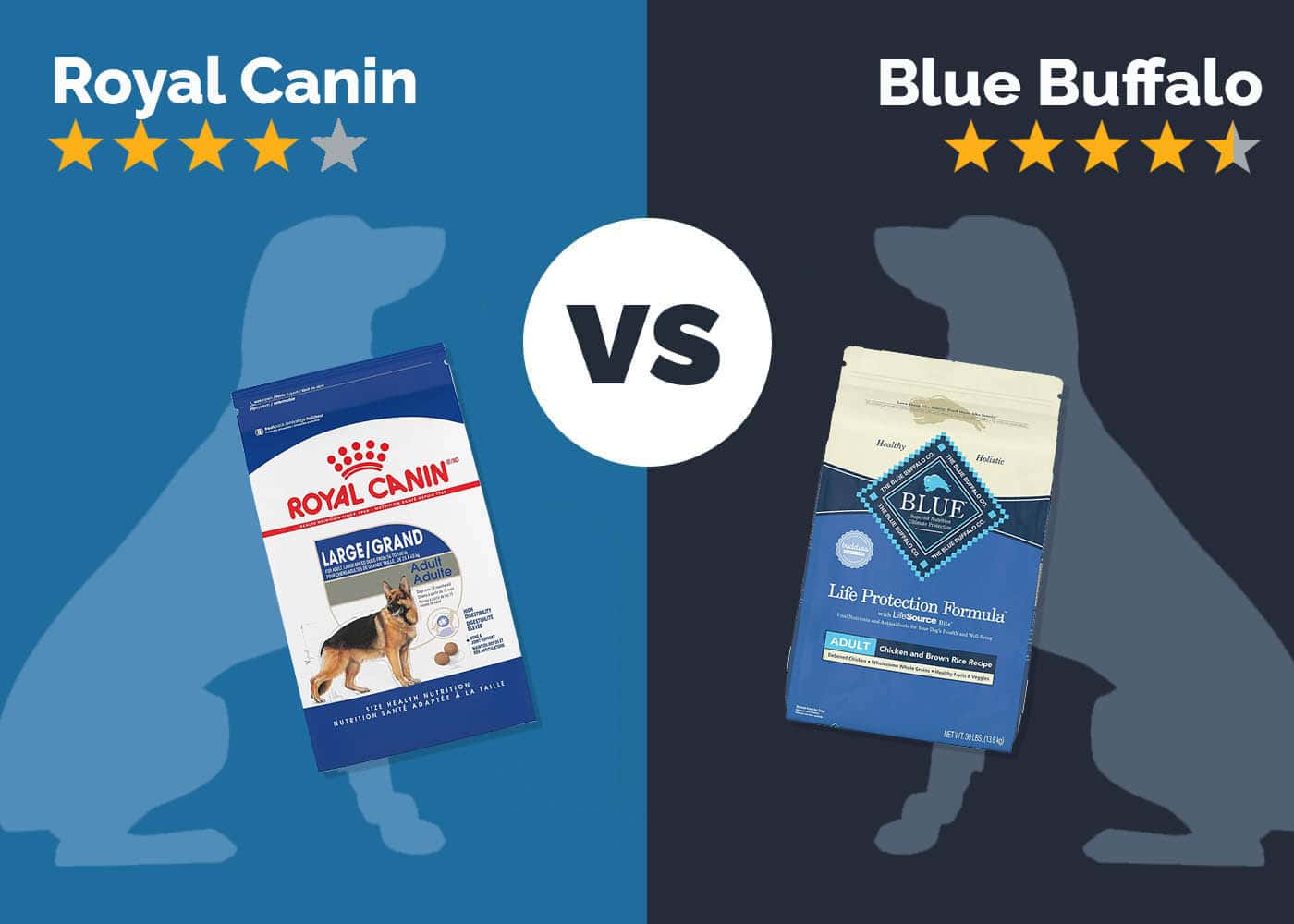Are Dogs Ticklish? Common Tickle Spots & Tips
Updated on

If you’ve ever spent any time playing with the hair between your dog’s paws, only to watch them kick their leg at you in return, you may have wondered, “Is my dog ticklish?” As it turns out, the answer is yes — or more accurately, it depends on what you mean by “ticklish.”
A dog has much the same response from their nervous system as a human does when tickled, but how they react to that response can differ greatly. Let’s take a deeper look.
What Does It Mean to Be Ticklish?
When you think of the word “ticklish,” you may picture someone collapsing into uncontrollable laughter while someone takes a feather to their foot or digs a finger into their armpits.
There are actually two different types of ticklishness: gargalesis and knismesis.
Gargalesis is the type that produces uncontrollable laughing. It’s extremely unlikely that dogs experience gargalesis, if for no other reason than it’s extremely unlikely that dogs can laugh.
Knismesis, on the other hand, produces a sensation like itching rather than laughter. It’s caused by a certain nerve impulse that can cause shuddering or the need to scratch. When you touch an affected spot, the nerves in that spot send a message to the spinal cord, which then causes involuntary leg movement.
If you’ve ever seen your dog’s hind leg start working overtime when you find just the right spot on their neck or stomach, you already know that dogs can experience knismesis.

Why Are Dogs Ticklish?
We don’t know the answer to this question for certain, but knismesis likely evolved as a way to keep insects and other creatures from attacking the dog.
Many of the most common tickle spots are also places that fleas, ticks, and other parasites like to invade. It’s possible that the involuntary reaction is designed to cause your dog to try to dislodge the parasite when they feel a certain sensation in those areas.
Do Dogs Enjoy Being Tickled?
Whether your dog actually likes the experience of knismesis is hard to say and likely varies from pup to pup.
To find out how your dog feels about being tickled, pay attention to their body language when you do it (and immediately after). If they wag their tails and present you with the same body part again, there’s a good chance that they thought that it was fun. Another sign to look for is a big stretch followed by an adoring glance up at you.
If, however, they tuck their tail, recoil, or otherwise seem disturbed after you activate their knismesis, it’s a good bet that they didn’t enjoy the experience.
Most dogs seem to enjoy the sensation of knismesis, which isn’t hard to understand. After all, there are few things in life as satisfying as being able to scratch a persistent itch.
What Are the Most Common Ticklish Spots on Dogs?
Every dog is different, and a spot that always gets one pooch going may do nothing for another. However, there are a few places that are more likely to produce a reaction than others.
The belly is prime tickling real estate on most dogs, especially along the sides. While you’re scratching there, you can also move up to the chest or under the armpits.
You can also try the neck, right below the ears, or on the back legs near the base of the tail.
You’ll know when you’re getting close, as they may start to raise their hind leg in anticipation. That’s your cue to start exploring the area, and once you find the spot, that leg will start to go wild.

Should I Ever Be Concerned About My Dog’s Ticklishness?
Most times, when you see your dog kicking their hind leg involuntarily, it’s merely a sign that you’ve found a spot that triggers knismesis, so there’s nothing to worry about. Sometimes, though, something more sinister may be in play.
The site that you’re scratching may not be causing involuntary itching at all — there may be something there that’s really causing your dog to itch. Possible culprits include fleas, allergies, and scabies, or there could be irritation from the dog’s collar or some other cause.
Many dogs are prone to skin allergies as well. Certain breeds (like Pit Bulls) are known for having skin allergies, while others have food sensitivities that can lead to skin irritation. Eczema is another common cause of itching.
If you notice that your dog seems to be more ticklish at certain times of year than others, then seasonal allergies could be the cause. They could have drier skin in the winter, for example, or they could be more prone to suffering from parasites at other times of the year.
If you’re worried about the possible cause of your dog’s ticklishness, keep an eye on them when you’re not tickling them. If you notice them frequently scratching, biting, or licking at the spot that you were tickling, you should explore that area further or take them in to see your vet. Also, if your dog used to enjoy being tickled but now seems to recoil from it, something may be affecting that area.
Is There Any Way to Make My Dog Enjoy Being Tickled?
Many dogs that seem to dislike being tickled don’t actually have a problem with the tickling; rather, they’re uncomfortable with you or their surroundings or they have a medical issue that you’re unaware of.
To convince your dog to trust you enough to let you tickle them, start with slow, predictable movements. Let them sniff you (especially your hands) before you begin, and start by stroking their chin or cheeks, which allows them to keep an eye on your mitts.
Once they become okay with this touching, you can start gently stroking them on the side or back. If the dog is skittish, they likely won’t allow you near their belly, so avoid that area.
All this petting and stroking should help relax the dog, so you can start with gentle scratches. While doing this, look for signs that you’ve found a tickle spot (look for the telltale raising of the hind leg in particular). If you find one, start with gentle scratches and only increase the intensity if you feel that the dog would be fine with it.
Some dogs may never enjoy it, but it’s still a good idea to expose them to having those areas poked, prodded, and handled. You never know when a vet or groomer will need to access those areas, and you don’t want your dog to freak out when they do.
You can also reward them with a treat if they allow you to touch their tickle spots, but if the dog appears to enjoy being tickled, that attention is likely all the positive reinforcement that they’ll need.
How Not to Tickle a Dog
There are definitely a few do’s and don’ts when it comes to tickling a dog, so try not to make any major tickling mistakes when showing them affection.
As a general rule, you shouldn’t try to tickle a dog that you don’t know. You have no idea how they’re going to react, and being tickled is something of a vulnerable act on the dog’s part. Wait until you’ve built up trust and a better rapport before you start with the tickling.
You should also pay attention to the dog’s body language the entire time that you’re tickling them. If they grimace or try to pull away from you, it likely means they’re not enjoying the interaction and you need to stop.
Obviously, if you see any other signs of trouble — like growling, bared teeth, or the infamous “whale eye” — you should stop immediately. That’s a dog who’s really not having fun, and they may be about to demonstrate their discomfort in a way that you find painful.

Conclusion: Are Dogs Ticklish
While you may not enjoy being tickled, most dogs seem to love it, and a dog that loves being tickled is a confident pup who’s comfortable around humans and willing to accept their affection. That’s a good thing!
- See also: Top 10 Least Affectionate Dog Breeds
Featured Image Credit: Free-Photos, Pixabay













